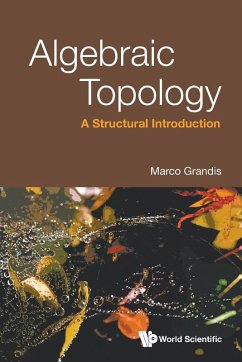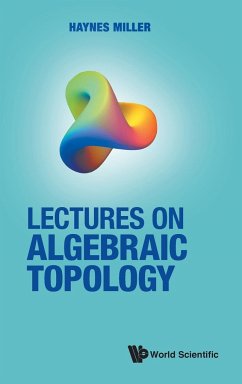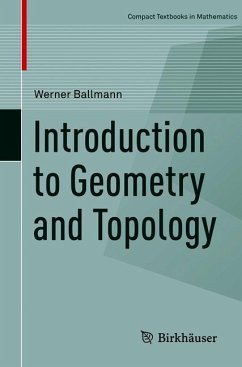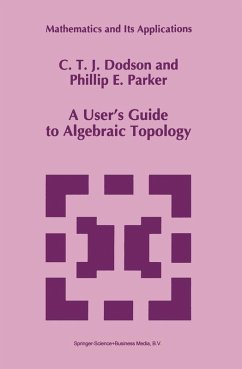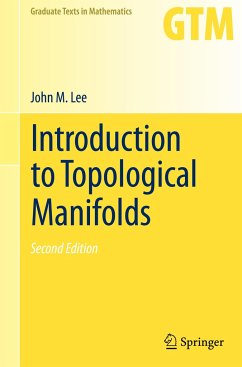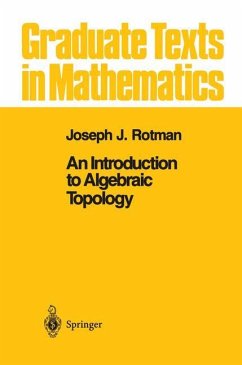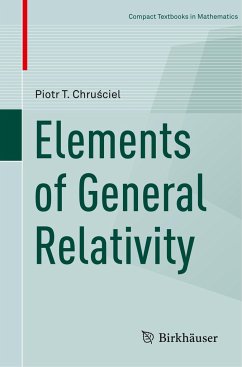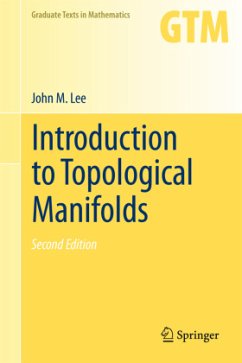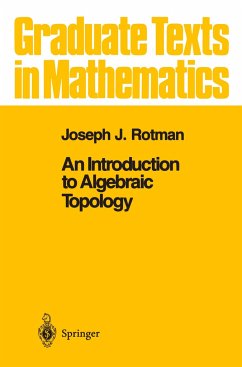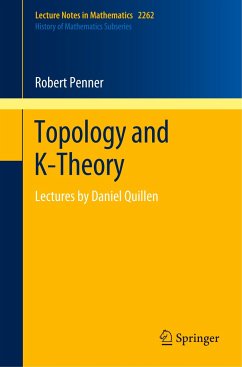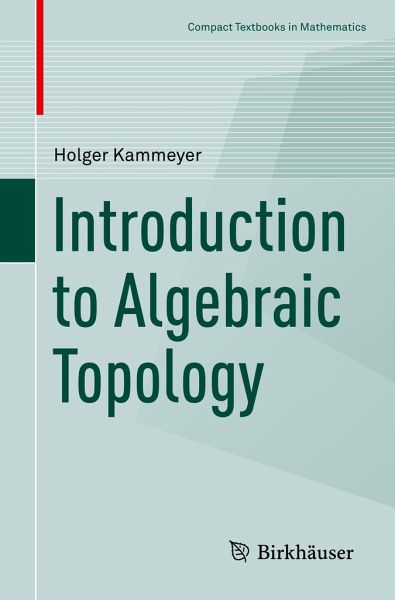
Introduction to Algebraic Topology

PAYBACK Punkte
0 °P sammeln!
This textbook provides a succinct introduction to algebraic topology. It follows a modern categorical approach from the beginning and gives ample motivation throughout so that students will find this an ideal first encounter to the field. Topics are treated in a self-contained manner, making this a convenient resource for instructors searching for a comprehensive overview of the area.It begins with an outline of category theory, establishing the concepts of functors, natural transformations, adjunction, limits, and colimits. As a first application, van Kampen's theorem is proven in the groupoi...
This textbook provides a succinct introduction to algebraic topology. It follows a modern categorical approach from the beginning and gives ample motivation throughout so that students will find this an ideal first encounter to the field. Topics are treated in a self-contained manner, making this a convenient resource for instructors searching for a comprehensive overview of the area.
It begins with an outline of category theory, establishing the concepts of functors, natural transformations, adjunction, limits, and colimits. As a first application, van Kampen's theorem is proven in the groupoid version. Following this, an excursion to cofibrations and homotopy pushouts yields an alternative formulation of the theorem that puts the computation of fundamental groups of attaching spaces on firm ground. Simplicial homology is then defined, motivating the Eilenberg-Steenrod axioms, and the simplicial approximation theorem is proven. After verifying the axiomsfor singular homology,various versions of the Mayer-Vietoris sequence are derived and it is shown that homotopy classes of self-maps of spheres are classified by degree.The final chapter discusses cellular homology of CW complexes, culminating in the uniqueness theorem for ordinary homology.
Introduction to Algebraic Topology is suitable for a single-semester graduate course on algebraic topology. It can also be used for self-study, with numerous examples, exercises, and motivating remarks included.
It begins with an outline of category theory, establishing the concepts of functors, natural transformations, adjunction, limits, and colimits. As a first application, van Kampen's theorem is proven in the groupoid version. Following this, an excursion to cofibrations and homotopy pushouts yields an alternative formulation of the theorem that puts the computation of fundamental groups of attaching spaces on firm ground. Simplicial homology is then defined, motivating the Eilenberg-Steenrod axioms, and the simplicial approximation theorem is proven. After verifying the axiomsfor singular homology,various versions of the Mayer-Vietoris sequence are derived and it is shown that homotopy classes of self-maps of spheres are classified by degree.The final chapter discusses cellular homology of CW complexes, culminating in the uniqueness theorem for ordinary homology.
Introduction to Algebraic Topology is suitable for a single-semester graduate course on algebraic topology. It can also be used for self-study, with numerous examples, exercises, and motivating remarks included.



